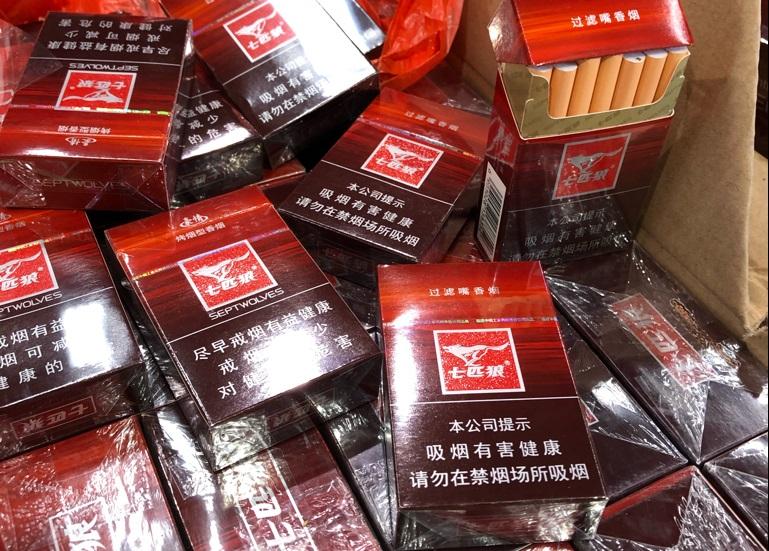Cheap cigarettes could be funding terrorism
Posted By John Coyne on November 11, 2020 @ 06:00

A criminal who wanted to smuggle a shipping container of illegal cigarettes into Australia could expect to make almost $10 million in profit. Of course, these criminals first need to get their products into the country. Both the federal government [1] and big tobacco [2] have tried to estimate how much illegal tobacco makes it through Australia’s borders—with vastly different answers. It’s probably fair to say that somewhere between 10% and 20% of all tobacco consumed in Australia isn’t legal.
The upper figure indicates that the government could be missing out on up to $3.4 billion in tax revenue. I suspect the average smoker in Australia couldn’t care less.
On a positive note, Australia’s large annual increases in tobacco tariffs have done their job. Overall, tobacco consumption is reducing [3]. However, tobacco companies believe [2] that purchases of illegal tobacco as a percentage of total sales are increasing. While big tobacco’s lobbyists talk about lost tax, their concern is really company revenue. It’d be hard to find a member of the public, a bureaucrat or a politician of any flavour concerned about big tobacco losing revenue.
The problem here is that as many as a fifth of Australian smokers seem to be buying illegal cigarettes and tobacco. In the process, these everyday Australians are unwittingly supporting global organised crime groups, possibly even terrorist groups like Hezbollah.
When visiting London’s Metropolitan Police, more than a decade ago, I became aware of what the real problem was: transnational organised crime. At the time, a deputy commissioner mentioned that many of the old intergenerational crime groups in the United Kingdom were no longer moving illicit drugs. Instead, they had switched to cigarettes—because there was more money to be made, less risk of being caught, and significantly more lenient punishments. It’s a situation very similar to Australia’s.
Eight years ago, it became apparent to many officials that Hezbollah, the Lebanese Shia Islamist militant group, wasn’t just making money from the global cocaine trade. It was also moving illicit cigarettes across the US and the Middle East, making profits from the wholesale to retail levels.
It was also only a few years ago that tobacconists in western Sydney, raided by Australian Border Force officers, had more than $1 million in cash on their premises [4]. Not a bad effort given the demise of cash sales and the financial struggles small retail businesses generally face.
Lots has been done by the government to tighten regulation on the tobacco industry. Tobacco can’t be grown legally in Australia. However, the legislation doesn’t stop the importation of machines used to manufacture cigarettes, or the tubes in which the tobacco is encased.
While Australia’s law enforcement and policymakers face a broad array of pressing challenges, the lack of priority given to illicit tobacco across the government has health, economic, rule-of-law and national security dimensions. It’s now time, after our tobacco policies have forced down smoking rates, to rethink our strategy.
Stricter border controls and more investigative staff are critical to addressing this challenge. The government needs to consider three other priorities.
Legislative reforms should be introduced that would allow greater use of proceeds of crime provisions to enable the seizure of wealth related to this market.
In addition, a review of tobacco legislation is required, and with it, investigation of specific vulnerabilities such as controls on cigarette-making machines.
Finally, the government needs to change Australian smokers’ mindsets around purchasing illegal products. Average Australians who want a luxury good like a sports car but can’t afford it don’t go to the local criminal group to steal one for them.
The Australian public needs to stop supporting criminals and terrorists. We need to stop buying illegal tobacco. I don’t think fining smokers more will work to achieve this outcome.
We need to make the facts clear for the smoking public. Buying illegal tobacco is not a victimless crime, and those involved in the trade are not ‘Robin Hood’-type characters saving average Australians from the evil taxman.
Suppose you are buying your cheap cigarettes or your loose-leaf tobacco online or under the counter. You are, at best, giving money to a criminal enterprise. At worst, you could be giving money to a terrorist organisation.
The people selling cheap illegal cigarettes online, or over the counter in your local shop, aren’t sticking it to the government and helping locals. Instead, whether they like it or not, they are participating in a transnational organised crime activity.
Article printed from The Strategist: https://aspistrategist.ru
URL to article: /cheap-cigarettes-could-be-funding-terrorism/
URLs in this post:
[1] federal government: https://www.ato.gov.au/General/The-fight-against-tax-crime/Our-focus/illicit-tobacco/?=redirected
[2] big tobacco: http://www.bata.com.au/illegaltobacco
[3] tobacco consumption is reducing: https://www.aihw.gov.au/reports/illicit-use-of-drugs/national-drug-strategy-household-survey-2019/data
[4] $1 million in cash on their premises: https://www.fairfieldchampion.com.au/story/2474285/six-tobacconists-in-fairfield-raided/
Click here to print.